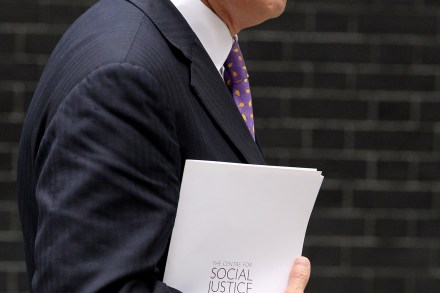The government could make political and fiscal gains if it reviews the Trident upgrade
On one level, there is something admirable about the government’s uncompromising support for a Trident upgrade: senior Tories really do believe in the deterrent’s strategic importance, and are not willing to sacrifice that. But, on many other levels, that same inflexibility is looking more and more unwise. Three former senior military figures write to the Times today with a new riff on a point that they have frequently made before. Why not squeeze another 15 years out of the current system, they say – by which time, “the anachronistic and counterproductive aspect of our holding on to a nuclear deterrent would be even more obvious.” This is an argument with



















